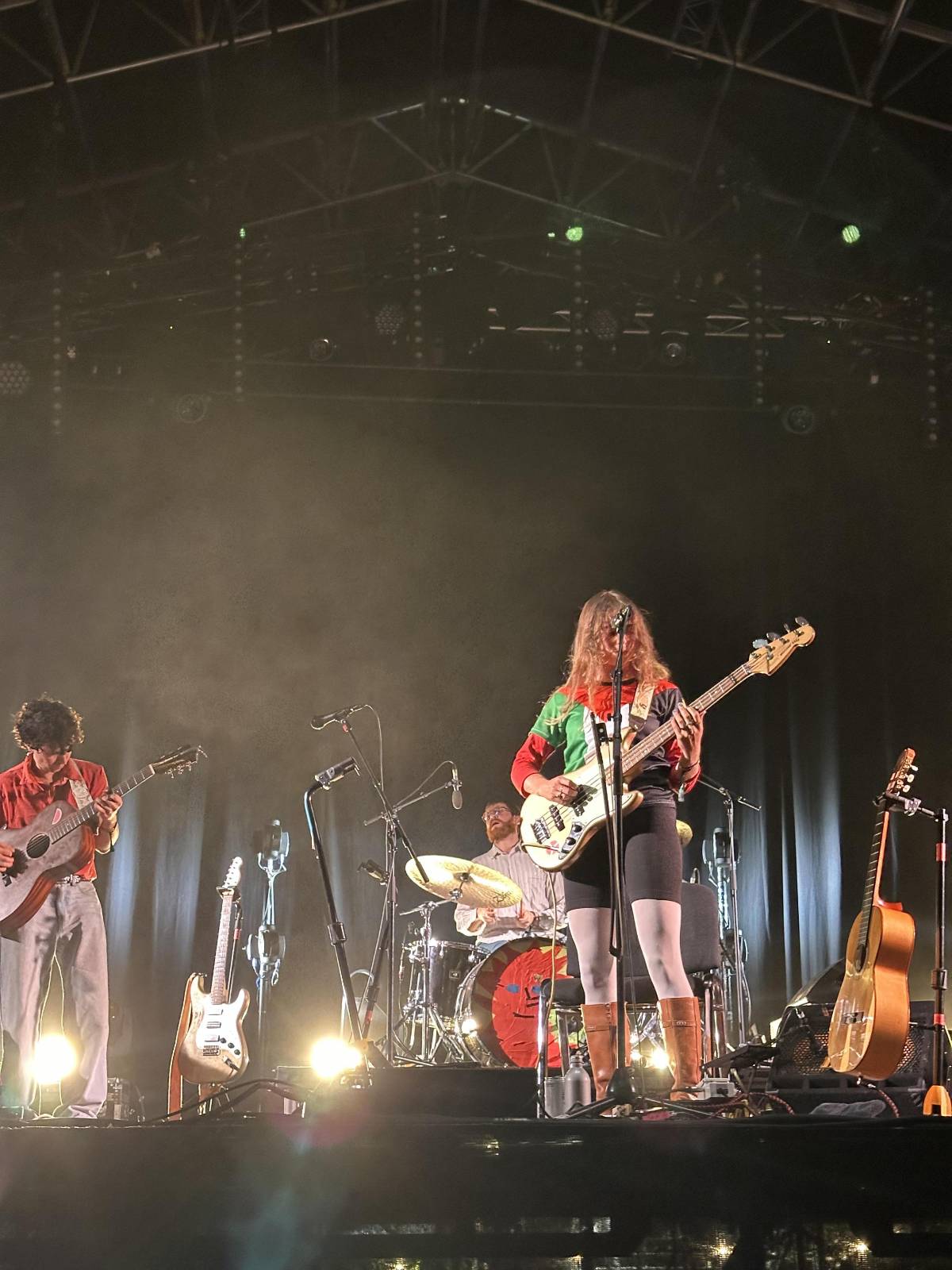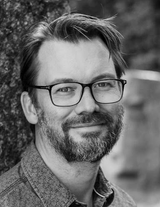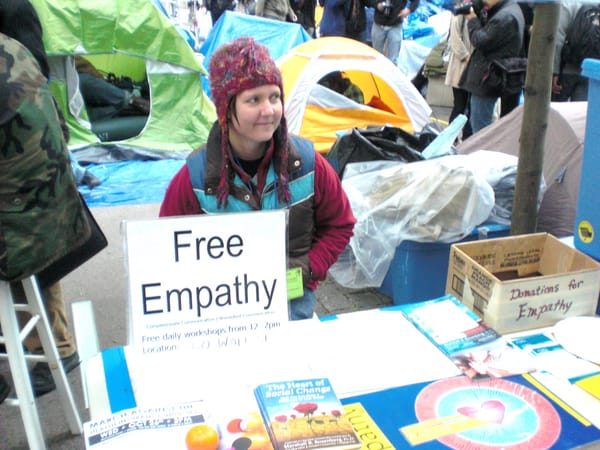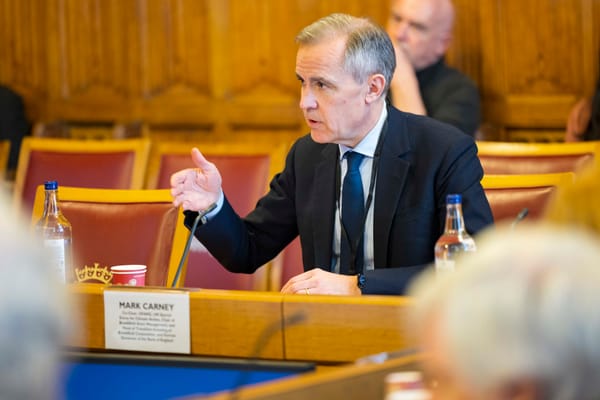Now is the time for nonmilitary defence
Does reducing help to the poorest really defend us?
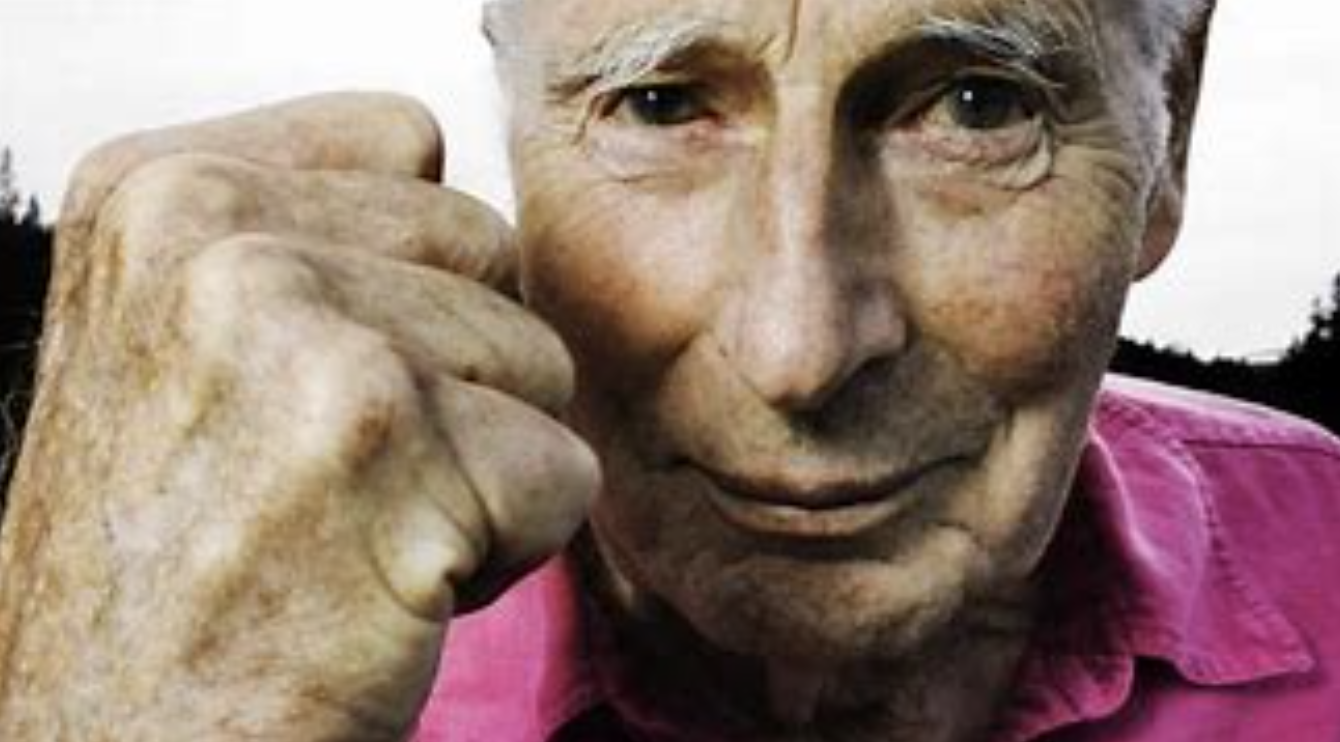
Back in June, during London Climate Action Week, I found myself in the sweltering splendour of Mansion House for a set piece on the politics of climate change. The main speaker, UK Special Representative for Climate Rachel Kyte, had a serious message for the various sustainability professionals, political operators and policy wonks in the room.
In effect, Kyte said: “The world is no longer safe and security is a priority. The government was right to reduce aid spending and increase defence spending.”
I recognise the world is not as safe for the UK as it has been over the last decades. And I definitely agree that people want to feel secure. That is one of the drivers of people voting for national populists. But does reducing help to the poorest, and increasing our military might, really defend us?
Then I remembered one of the most important, if obscure, thinkers of the 20th century, Arne Naess, who coined the term ‘nonmilitary defence’. It might be useful to offer a bit of background on Naess to those who don’t know his work.
Naess to meet you
Arne Naess was born in Norway in 1912. Through the 1930s, he was a philosophy student in Paris, Vienna and Berkley, increasingly inspired by Gandhi’s active nonviolent resistance (satyāgraha) happening in India.
In 1939, Arne Naess was appointed as professor of philosophy at University of Oslo (and the only philosophy professor in the country). In 1940, Norway was invaded by Nazi Germany, and fell to their control in just three months. Through the five years of Nazi occupation, Naess held to his nonviolent principles and still was active. He worked undercover for the Norwegian Intelligence Agency XU.
After the war, Naess pursued various paths of active philosophy, including in his mountaineering and deep commitment to the Norwegian landscape. In 1970, one year after retiring from university life, he was part of a group chaining themselves to a fjord waterfall, trying to stop a new dam — launching a more activist phase of Norwegian environmentalism.
In the English-speaking world he is probably best known for coining the term ‘Deep Ecology’. Naess was pushing back on what he called shallow ecology, which “is concerned with fighting against pollution and resource depletion. Its central objective is the health and affluence of people in the developed countries.”
Instead, Deep Ecology says all living beings have inherent worth (not through utility to people) and that societies should be restructured around self-realisation of all, where ‘all’ is all living beings, not just humans.
If you’ve ever nodded at the memes of ‘eco-centric, not ego-centric’, or said to yourself we need deep questioning of the status quo, or used nonviolent direct action for the benefit of all living beings, then you are echoing Naess’ work.
I first came across Naess in 2001 in my Masters in Responsibility and Business Practice, during a Deep Ecology week at Schumacher College. In 2016, Somerset House ran an exhibition on Utopias, and as I was exiting via the shop, I noticed Naess’ Ecology of Wisdom. I bought it and, unlike the vast majority of the books I buy, I actually read it.
Defence for normal countries
Back to the question: does reducing help to the poorest, and increasing our military might, really defend us?
In a 1962 essay, ‘Nonmilitary defence’ (paywalled version here), Naess defines the purpose of defending a nation as “defend a way of life against all external forces that would alter our lives without our consent.”
Just take a moment to luxuriate in that framing. I wonder what might have happened if we had used that concept of defence through the last decades?
Some 25 years ago, the anti-globalisation left was marching for defence against external economic forces that changed regions and countries without democratic consent. Almost 10 years ago, the Brexit slogan of ‘Take Back Control’ had such resonance because of the widespread sense that our lives were being altered by external forces.
As I type, people in the UK are putting up the national flag so that people don’t forget that this is ‘our country’. The underlying desire for consent in changes to our way of life is still raw and alive. (The reasons why leaving the EU did nothing to fulfil that need is a subject for a different newsletter.)
Imagine what a different country, what a different world, we would be in if every nation had the means to defend its way of life against all external forces that would alter their lives without their consent.
But how can you really put into practice this ‘nonmilitary defence’? Naess articulates four components:
1.Citizens co-create our ‘way of life’.
Naess wrote:
“The first stage in developing a nonmilitary defense policy is...the clarification of the principles that we value and the qualities of the way of life we wish to pursue, so as to increase our commitment to these principles...The most apparent need is for a national self-examination by all parts of the population concerning what it is in our way of life that we cherish and wish to extend and preserve.”
Naess describes discussion groups, panels, debates on both local and national levels, and with grassroots institutions as local centres for this national program.
A bit like bringing together 150+ amazing people, individuals and organisations, all ready to do the joined-up, collaborative work needed to build a better world in the Fate of Britain Convention… (It’s on Thursday 11th September in London, and we still have some tickets left: here.) Let’s hope so.
2.Improve our own society
Naess argues that we need to “make our own society worthier of defense and more capable of being defended by nonmilitary means”. You cannot deliver on nonmilitary defence if there are many aspects of your society which people cannot commit to.
Leaning into the experience of the Second World War, Naess argues that Austria had already moved towards a one-party system with concentration camps when Anshluss happened in 1938. It is hard to defend your country from authoritarian aggressors if you have become authoritarian already, as some argue is happening.
The way of life that citizens co-create needs to be enacted, otherwise it is just words.
Also:
“another necessary improvement is the decentralisation of decision-making power...What is needed is a general strengthening of those institutions in our society that can train the individual to make decisions in times of crisis in the absence of the top governmental hierarchy.”
In our own times, we know many local communities responded to the COVID pandemic with mutual aid. Going forward we are going to be exposed to more extreme events, and general erosion of what we rely on, for instance for food.
Local participative democracy is both a good thing now for the voice it gives people in their own lives, and good for the future as preparation for more disrupted times. If only something existed to build an assembly culture? It could be called the Humanity Project.
3.International service
Naess also wrote:
“International service should be undertaken for its own sake, to relieve suffering and meet human needs. It is also important as a means of expressing and implementing our nation’s way of life and principles, particularly the concern for human dignity and justice and freedom upon which we like to think our society is based.”
As long as pursued without cynicism, Naess argues such international service also helps with nonmilitary defence, as it:
- Contributes the removal of important causes of conflict and wars.
- Increases personal connections, which increase international solidarity.
- Creates a more sympathetic attitude towards our country and how we practice what we preach.
- Increases the ability of our country to meet crises, by having cohorts of people used to cooperating in difficult situations.
Now we can see that the Starmer government cutting the aid budget to pay for military spending was a very stupid move. UK aid provision had a reputation for making a positive difference. Reducing aid suddenly undermines that, and misses out on all the benefits Naess articulates.
But there is more, as the UK government did this at the same moment USAID was cut. Countries and development organisations are left even more in the lurch, especially on humanitarian aid. They will not forget what we did, and they will remember how other nations stepped up.
Imagine if we had stepped up. The amount of aid spending is small. If we had doubled it, we could have been saving the most important efforts previously funded by USAID. We could have been building allies and solidarity for a more complex and troubled 21st century (where US leadership is fading).
Such a huge opportunity missed. (And for those who say we should be helping our citizens before foreigners, I point you to item 2.Improve our own society.)
4.Nonmilitary resistance
Finally, Naess has different techniques of resistance for when a country is overwhelmed by an army with huge superiority. He again leans into his recent Norwegian experience: noncooperation; encouraging occupying soldiers to be lax or negligent; and, continuing the customary way of life in small units.
Drawing it all together
We can frame what is needed as the ability to defend ourselves against all external forces that would alter our lives without our consent. In the modern world, military defence is insufficient. So, we need nonmilitary defence.
Does reducing help to the poorest, and increasing our military might, really defend us? No. Not as a middling power in a fragmenting and disrupted world.
Would a nonmilitary defence policy contribute to the nation’s ability to cope with crises and at the same time they enrich and improve our own society? Yes.
Wouldn’t that be a better way of thriving in the 21st century while facing up to the challenges of the multifaceted, intersecting shitshow (aka ‘polycrisis’)?
People in the UK would be stronger, safer, more secure. And the world too.
We would have shown how we can collectively make a better way to live.
So how do we make this happen?
Imagine citizens more engaged in the fate of both their neighbourhood and nation. Imagine putting those desires into practice to actually improve our own society, especially through local assemblies and a national network of participation beyond a simple vote every few years. Imagine an international service which expresses our way of life, and helps reduce conflict and increase the desire of others to defend us.
If you can imagine it, or want to, do come and join us at our Convention on the Fate of Britain next week. But if you can’t make it, don’t worry, the Convention is just one more step in this journey of connecting and collaborating on our better story, of who we want to be. There will be lots happening in the years to come. Reach out and get in touch.
Elsewhere in Absurdity...
As you can expect much of our energy this week has gone into final preparations for the Convention, and so time for a small shout out in advance, of thanks to those who are shaping the day and to give a little taster:
- Thank you to the amazing team at Our House, who are running an afternoon breakout on writing a charter for the fate of Britain – we’re looking forward to working closely with them over the next few years as part of this connected ecosystem for a transformation of our political systems;
- Thank you also to Humanity Project and Haringey Community Food Network who are running a breakout session on Recipes of Love – how food is central to our communities and agency;
- Thank you of course to our great friends the Camerados, who will be hosting their no-agenda Public Living Room, which anyone can do (have you read our camerado Maff’s book Friends and Purpose? It is genuinely the most important political book of our time and yet it reads as smoothly as dipping a bourbon in a cuppa);
- And thank you to Charles Landry and Theo Garcia, who will be running a breakout on Rebuilding Intergenerational Solidarity;
- Thank you to our brilliant panel who’ll be discussing our common story: Maureen Onwunali (slam poet champion), Hardeep Matharu (Byline Times), Andy Green (Modern Cockney Festival), Anwar Akhtar (Samosa Media), and our stellar chair Josephine Burton (Dash Arts);
- And thank you to all who’ve bought gift tickets so we could give them to other community organisers, as well as everyone who has put up their hands to volunteer on the day: you’re all bloody wonderful.
- Here’s our Maddy sewing sashes for our Convention crew uniforms:
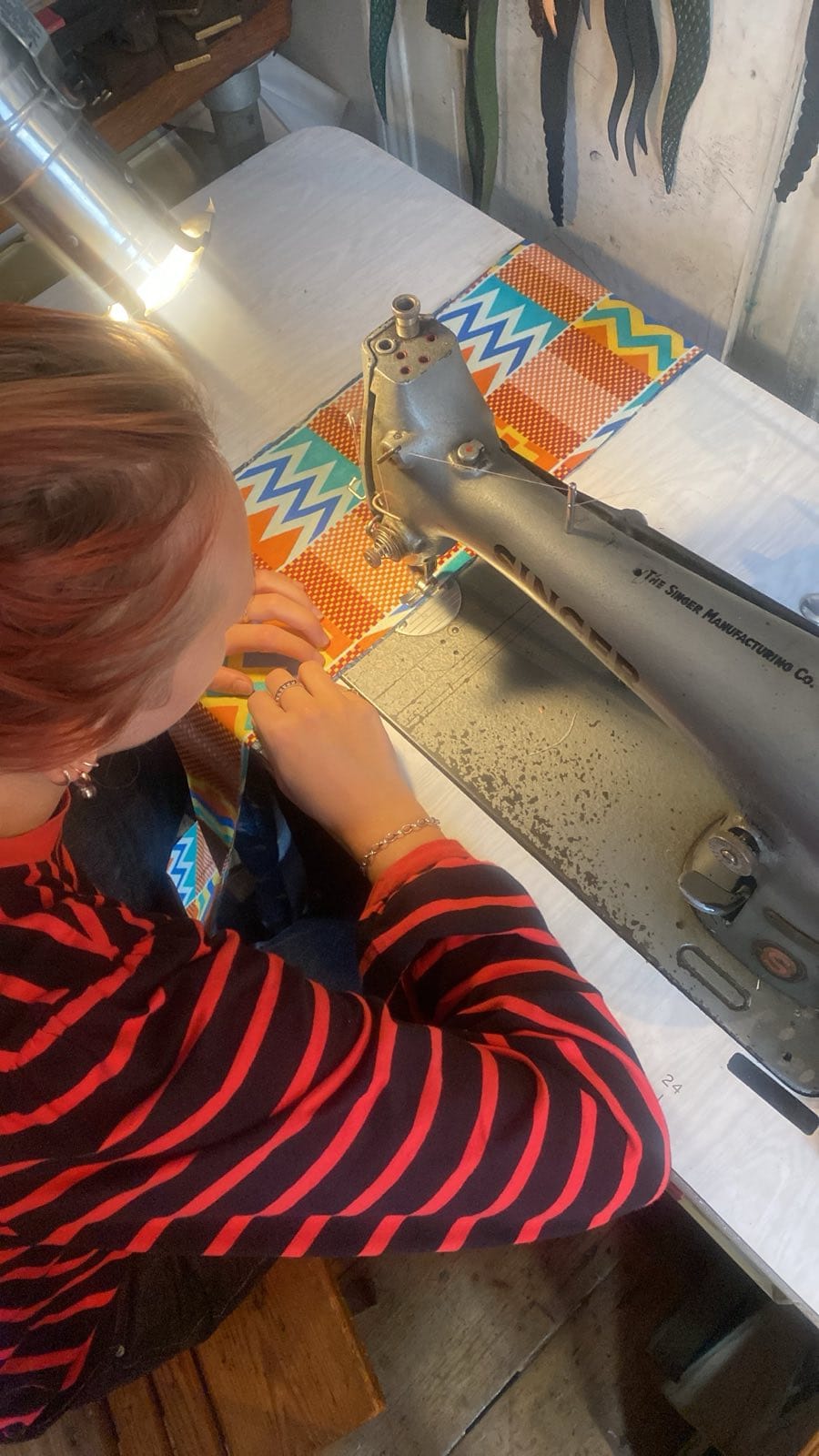
- And Sophie made it to End of the Road festival, where Palestine flags and colours were placed front and centre by many artists, including Black Country New Road, Daisy Rickman, and Sorry.
